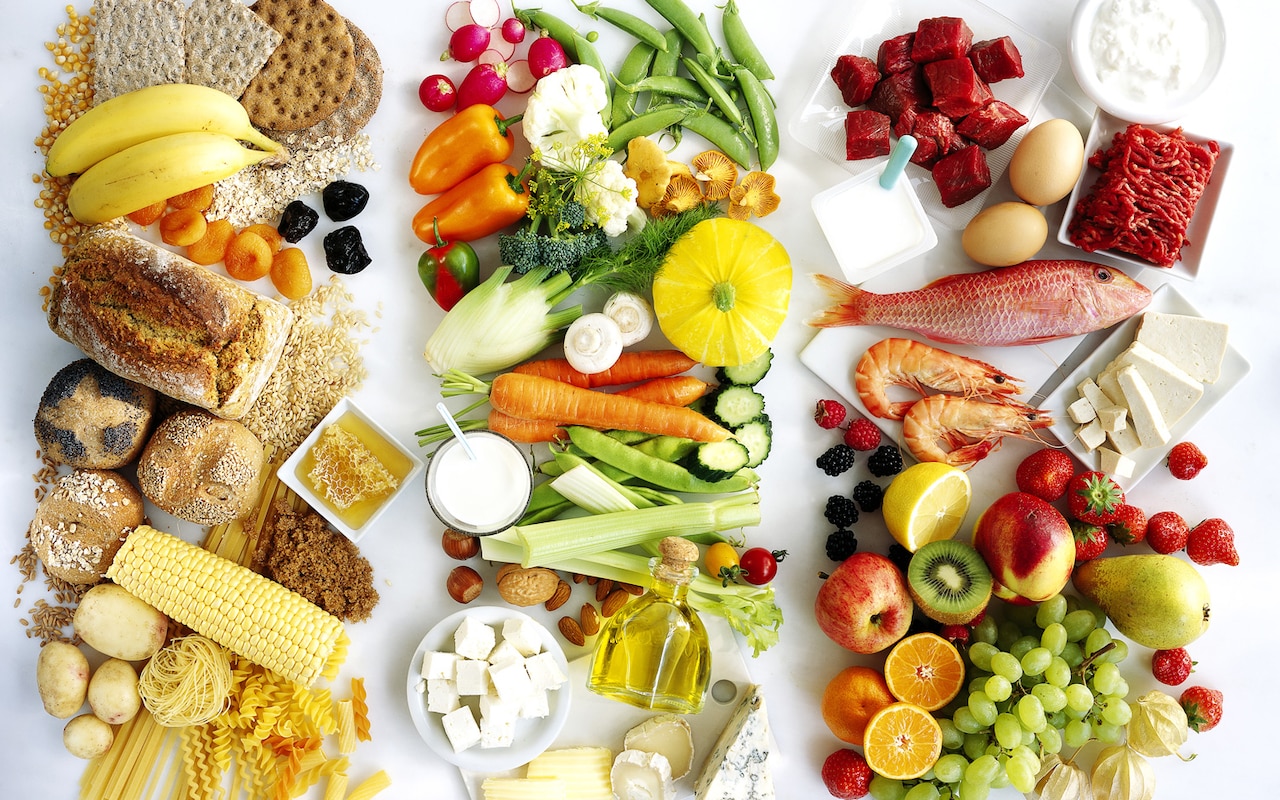
Important food groups for your growing taste adventurer!
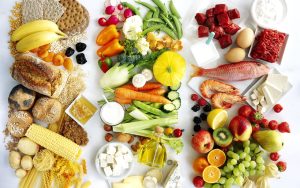
Feeding your little one can feel like a huge responsibility; they grow quickly, so it’s important that their diet provides them with all the nutrients they need. Focusing on the key food groups in their diet can make life simpler. If you include these foods at each meal or throughout the day, you can rest assured that your little one is getting all of their nutritional needs.
Registered dieticians recommend you begin weaning with a “vegetable first” approach and not to introduce sweet foods at this vital stage of development. You can then work through the other main foods, including grains, dairy, meat, fish, eggs, ground/crushed nuts and seeds.
Once your little one is eating a range of foods, you can focus on including something from each of the food groups at every main meal. A small handful of starchy foods, protein and fruit/vegetables is roughly the right amount of food for a portion. Typically, they will be ready for this approach at around 10-12months of age.

Fruit and Vegetables
It’s important to feed your little one fruit and vegetables throughout the day. Aim to have 2 types of vegetables with lunch and dinner, 1 fruit or veg option at breakfast and offer some as a snack with a starchy food or protein between meals. This will help build the foundation of fruit and vegetables being key foods for your baby to munch on. Be mindful to not give your little one only sweet fruits as they can be high in sugar and once they build a taste for sweet foods, it can be very difficult to get them to eat savoury foods.

Starchy foods
Starchy foods provide carbohydrates, B vitamins, iron, folate and calcium. Offer these with each meal and with at least one snack during the day. Whilst wholegrain versions are good options they can be very filling for little tummies, so a variation between white and wholegrain starch is a good idea. White starches would include potatoes, white flour and bread. Wholegrains include couscous, wholegrain breakfast cereals, oats and brown rice/pasta.

Protein foods
Little ones don’t need anywhere near as much protein as adults but it is still important for growth and development. Offer these at each meal if you can- milk and dairy foods contain protein too. Protein can also make a good snack as it is generally quite filling. For example: cheese and cut up grapes or nut butter on toast fingers.

Dairy
Dairy is an important food group for a number of reasons. It contains calcium which helps keep bones and teeth strong. Also growing infants require a higher proportion of fat than adults do to aid growth development. Choose a full fat version of dairy foods, a plain/natural yoghurt, and do check any plant alternatives are fortified with calcium as a minimum- ideally with calcium, vitamin D and iodine.
If cows milk protein allergy is an issue for your little or you prefer to wean on a dairy free diet, then there are many great alternatives to dairy that also contain essential fats. These include nut butters, avocados. Milk alternatives include pea and oats, do always check that a dairy alternative is fortified with calcium. As with with anything new, try it in very small quantities to begin with to see if it agrees with your little one. With any allergy or intolerance concerns, then speak with your doctor or health advisor before introducing into their diet.

Some tasty balanced meals and snacks:
-Porridge oats with cooked apple, milk and nut butter
-Apple slices and breadsticks
-Scrambled eggs with toast fingers, cooked spinach and pepper. A yoghurt.
-Carrot sticks and hummus
-Chicken casserole with 2 types of vegetables and mashed potatoes. Milk to drink.
-Blueberries and custard.
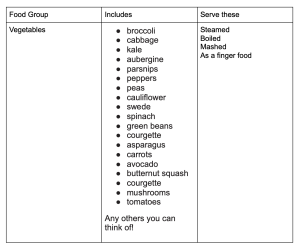
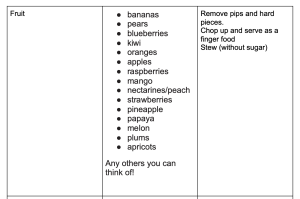
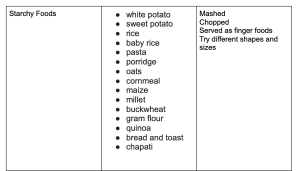
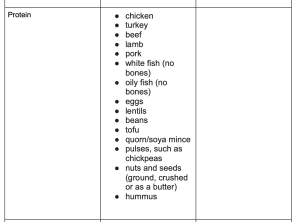
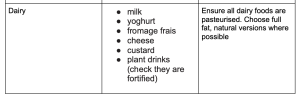

-Written by For Aisha Nutritionist Priya Tew.




